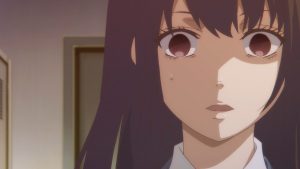 I’m tempted to say that this is as good a drop-dead point as any if you’re new to Kono Oto Tomare. But of course, I want people to keep watching so… Keep watching. Still – if you’re not feeling it at this point, that’s probably not a good sign. It’s not as though this is everything the series has to offer by any means – in fact, I’d say that the prologue has effectively just ended and the real story is about to begin. But in terms of comprehensively showing off why I at least love this series, this episode comes about as close as any episode could.
I’m tempted to say that this is as good a drop-dead point as any if you’re new to Kono Oto Tomare. But of course, I want people to keep watching so… Keep watching. Still – if you’re not feeling it at this point, that’s probably not a good sign. It’s not as though this is everything the series has to offer by any means – in fact, I’d say that the prologue has effectively just ended and the real story is about to begin. But in terms of comprehensively showing off why I at least love this series, this episode comes about as close as any episode could.
 If I was to try and summarize the emotional palette of Kono Oto, I think I’d say “using the negative to highlight the positive”. This is not a carefree and happy story by any means – the characters are all (well, mostly) pretty troubled. They’ve gone through a lot of pain, and a lot of painful things continue to happen. Progress is a marathon, not a sprint. But it’s definitely not a story for cynics. I talked a lot about the “possibility vs. regret” dichotomy when I was covering Orange, and I think that’s very much in play with Tomare. But it’s a series that always wants us to believe that possibility can triumph as long as we have the will to let it happen.
If I was to try and summarize the emotional palette of Kono Oto, I think I’d say “using the negative to highlight the positive”. This is not a carefree and happy story by any means – the characters are all (well, mostly) pretty troubled. They’ve gone through a lot of pain, and a lot of painful things continue to happen. Progress is a marathon, not a sprint. But it’s definitely not a story for cynics. I talked a lot about the “possibility vs. regret” dichotomy when I was covering Orange, and I think that’s very much in play with Tomare. But it’s a series that always wants us to believe that possibility can triumph as long as we have the will to let it happen.
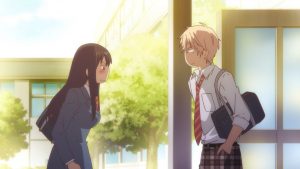 Satowa apologizing to Chika is a simple thing, no doubt, but it’s by no means insignificant for either of them. At the bare minimum it put Chika in mind of another time someone apologized for misunderstanding him, and connected (that word is very important with this show) the past and the present, and the two people in question. For Satowa, whose life has been unforgiving from the start, to accept blame (or indeed her own fallibility generally) is very much against her ingrained behavior. Personal growth is such an essential component of Kono Oto Tomare – if you want characters that are finished products, this is not the series for you.
Satowa apologizing to Chika is a simple thing, no doubt, but it’s by no means insignificant for either of them. At the bare minimum it put Chika in mind of another time someone apologized for misunderstanding him, and connected (that word is very important with this show) the past and the present, and the two people in question. For Satowa, whose life has been unforgiving from the start, to accept blame (or indeed her own fallibility generally) is very much against her ingrained behavior. Personal growth is such an essential component of Kono Oto Tomare – if you want characters that are finished products, this is not the series for you.
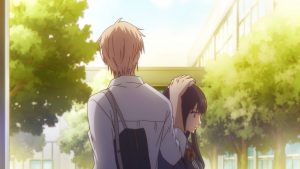 As the Kyouto-sensei veritably quivers with anticipation over the trap he’s laid for the koto club – not realizing he’s actually the one approaching the trap – we’re briefly introduced to the heretofore unseen and unmentioned advisor, Takinami-sensei (Namikawa Daisuke). Meanwhile Granny (who Chika has secretly asked the Koucho-sensei to invite to the performance) gently tries to steer the kids towards the next step in their development as players – going past playing the notes on the page correctly, and starting to play them honestly. The dragon symbolism again, using music as a means of connecting – it’s a motif that keeps popping up, and with good reason.
As the Kyouto-sensei veritably quivers with anticipation over the trap he’s laid for the koto club – not realizing he’s actually the one approaching the trap – we’re briefly introduced to the heretofore unseen and unmentioned advisor, Takinami-sensei (Namikawa Daisuke). Meanwhile Granny (who Chika has secretly asked the Koucho-sensei to invite to the performance) gently tries to steer the kids towards the next step in their development as players – going past playing the notes on the page correctly, and starting to play them honestly. The dragon symbolism again, using music as a means of connecting – it’s a motif that keeps popping up, and with good reason.
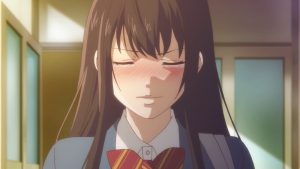 The morning of the performance finally arrives, and with it naturally a bad case of nerves for everyone involved. I think it’s hard to overstate the importance of having someone like Satowa in the group here, as ruthlessly inflexible as she can be as a teacher – she’s a safety net for the others, especially the three total newbies. At some point that has to stop being the case, but for now it’s a perfectly acceptable act of deference to reality – knowing she’s there to cover for them (as indeed she’ll end up doing here) takes a bit of edge off the pressure they’re feeling.
The morning of the performance finally arrives, and with it naturally a bad case of nerves for everyone involved. I think it’s hard to overstate the importance of having someone like Satowa in the group here, as ruthlessly inflexible as she can be as a teacher – she’s a safety net for the others, especially the three total newbies. At some point that has to stop being the case, but for now it’s a perfectly acceptable act of deference to reality – knowing she’s there to cover for them (as indeed she’ll end up doing here) takes a bit of edge off the pressure they’re feeling.
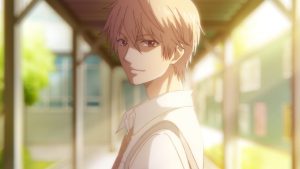 Takezou fails his first challenge of this day – to be the one to stand up and buck the members’ spirits as they wilt under the pressure (fortunately Satowa does just that). But he passes the second, responding to the hecklers at the assembly with a message as much to his team as to them. The Kyouto-sensei makes no attempt to hide his contempt in introducing the group, but he inadvertently takes a lot of the pressure off them – with an audience this unreceptive and expectations this low, they can just say “screw it” and play.
Takezou fails his first challenge of this day – to be the one to stand up and buck the members’ spirits as they wilt under the pressure (fortunately Satowa does just that). But he passes the second, responding to the hecklers at the assembly with a message as much to his team as to them. The Kyouto-sensei makes no attempt to hide his contempt in introducing the group, but he inadvertently takes a lot of the pressure off them – with an audience this unreceptive and expectations this low, they can just say “screw it” and play.
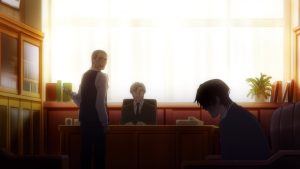 And play, they do. Boy, do they ever. Needless to say, this was an important watershed for Kono Oto Tomare – the first full-length koto performance of the series. This was the first chance for the anime to do what the manga could never do, and it was important not just to get it right, but to knock it out of the park. For me, it did. The music itself was beautiful – for me, even better than the special PV version Shueisha put out for the manga. The highs and lows, the discordance when Kouta went off sync, the fierce insistence of Satowa in bringing everyone back – I felt all of it, exactly as I imagined it as I read it in the manga.
And play, they do. Boy, do they ever. Needless to say, this was an important watershed for Kono Oto Tomare – the first full-length koto performance of the series. This was the first chance for the anime to do what the manga could never do, and it was important not just to get it right, but to knock it out of the park. For me, it did. The music itself was beautiful – for me, even better than the special PV version Shueisha put out for the manga. The highs and lows, the discordance when Kouta went off sync, the fierce insistence of Satowa in bringing everyone back – I felt all of it, exactly as I imagined it as I read it in the manga.
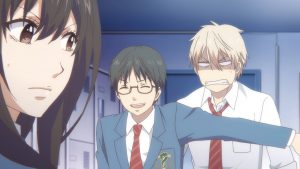 Really, though, everything – the episode, the performance, the first 5 episodes – comes down to Chika’s solo. And I’m not ashamed to admit, I got very emotional listening to that solo. In the context of the moment (the dragon again) with no question to whom Chika was sending those notes, to hear that ethereally beautiful and gentle playing was very powerful. “Sounds do not lie” indeed – the idea that music can reveal the artist’s soul in a way their words cannot mask is a profound one. We – all of us – want to be understood. And it’s clear how much it meant to Chika to know his grandfather (and Tetsu too, to be sure) understood him. That solo was his expression of gratitude to them, and to hear that finally brought to life in anime form made all the waiting for this adaptation worth it.
Really, though, everything – the episode, the performance, the first 5 episodes – comes down to Chika’s solo. And I’m not ashamed to admit, I got very emotional listening to that solo. In the context of the moment (the dragon again) with no question to whom Chika was sending those notes, to hear that ethereally beautiful and gentle playing was very powerful. “Sounds do not lie” indeed – the idea that music can reveal the artist’s soul in a way their words cannot mask is a profound one. We – all of us – want to be understood. And it’s clear how much it meant to Chika to know his grandfather (and Tetsu too, to be sure) understood him. That solo was his expression of gratitude to them, and to hear that finally brought to life in anime form made all the waiting for this adaptation worth it.


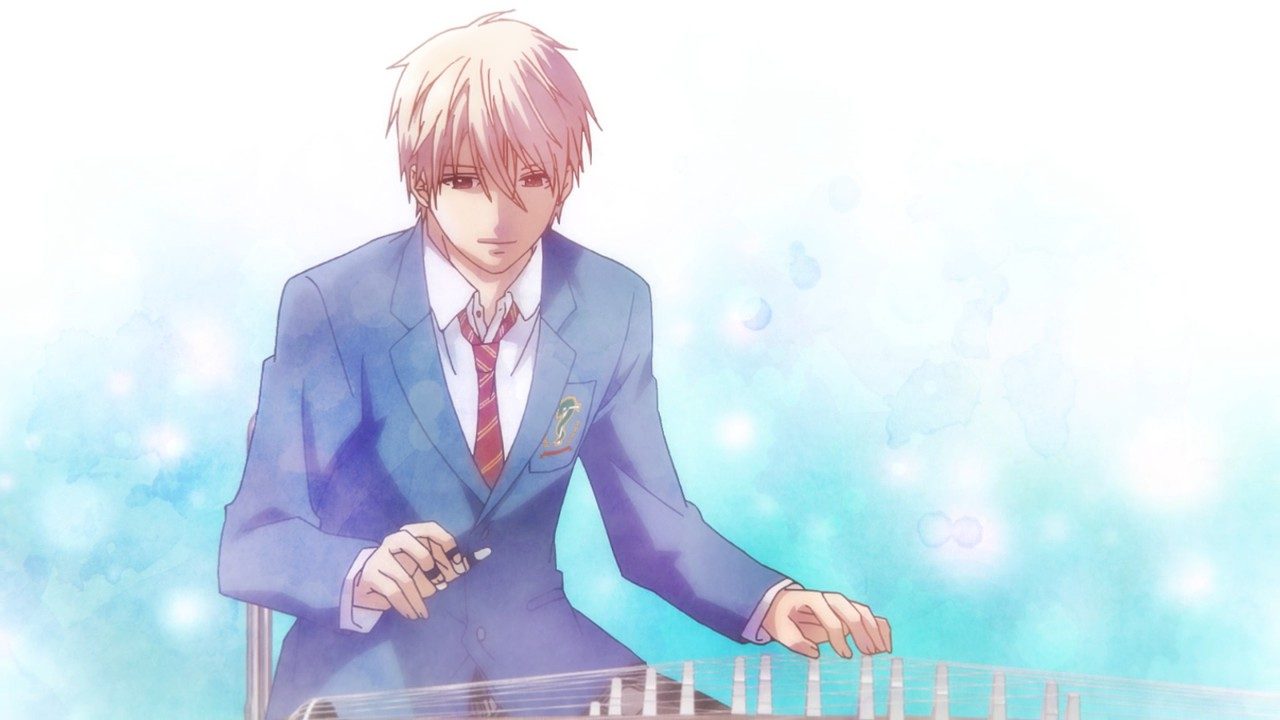
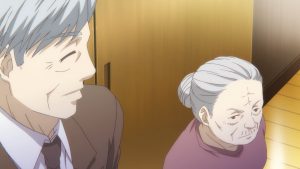
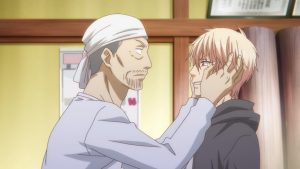
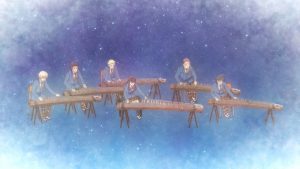
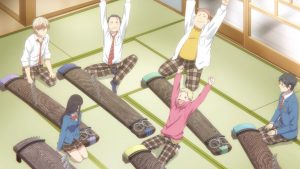
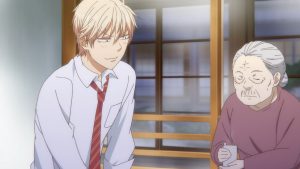
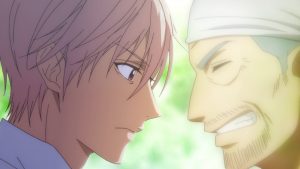
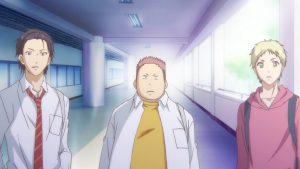
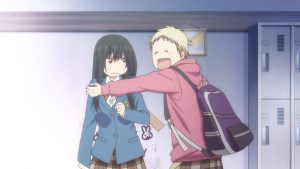
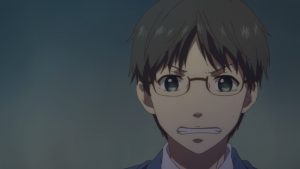
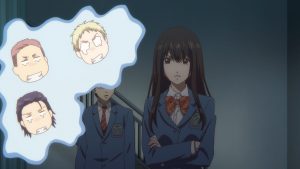
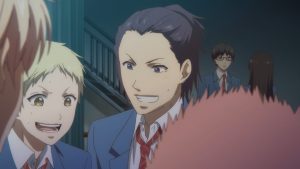
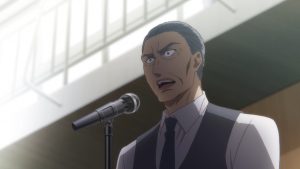
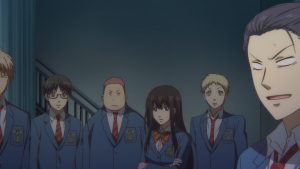
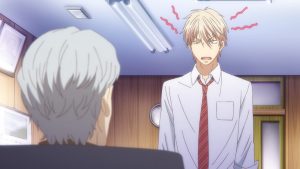
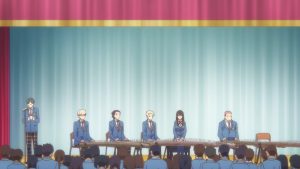
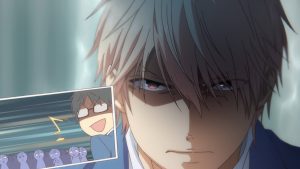
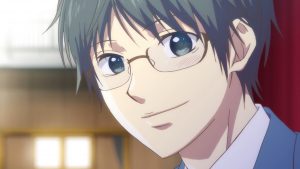
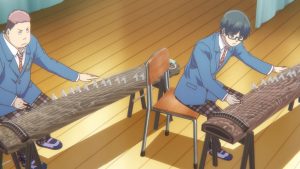
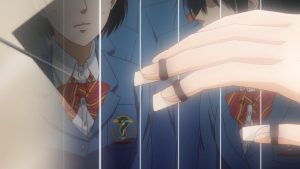
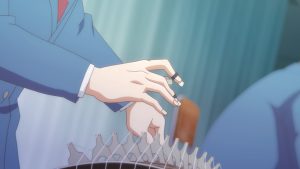
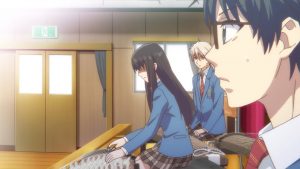
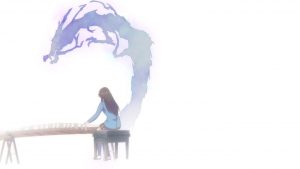
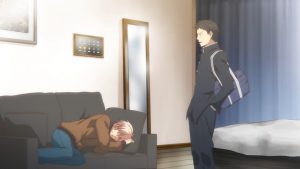
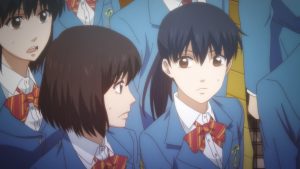
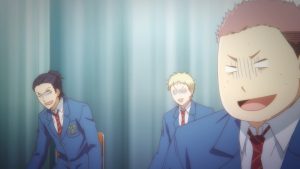
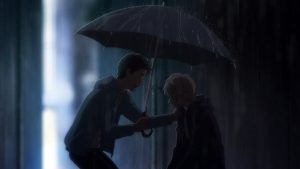
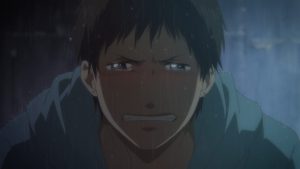
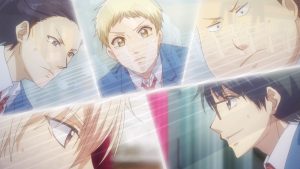
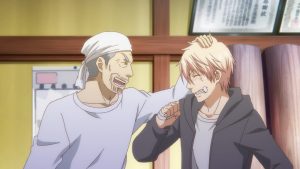
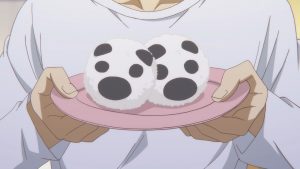
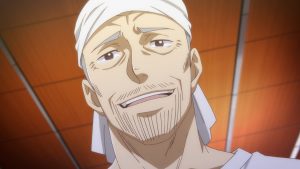
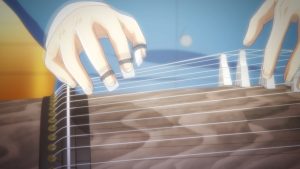
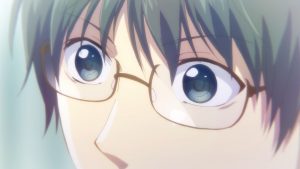
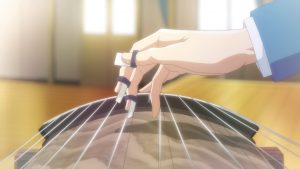
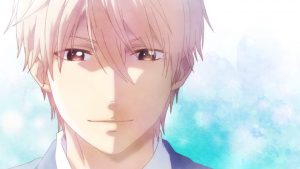
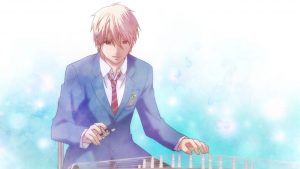
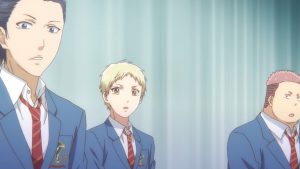
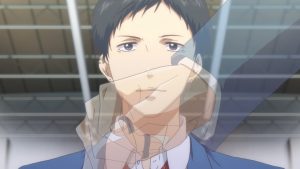
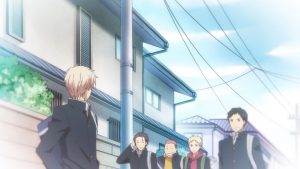
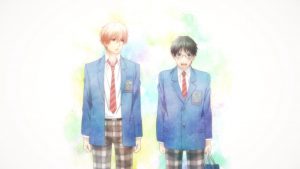
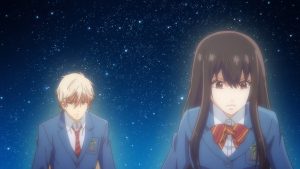
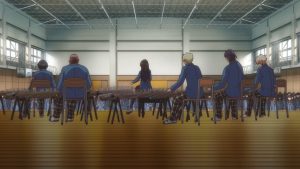
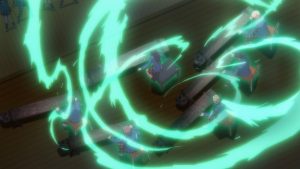
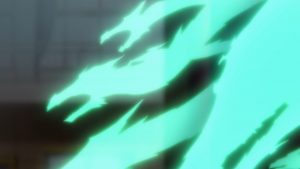
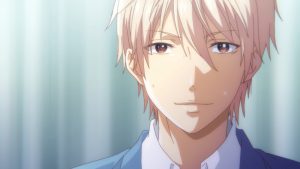
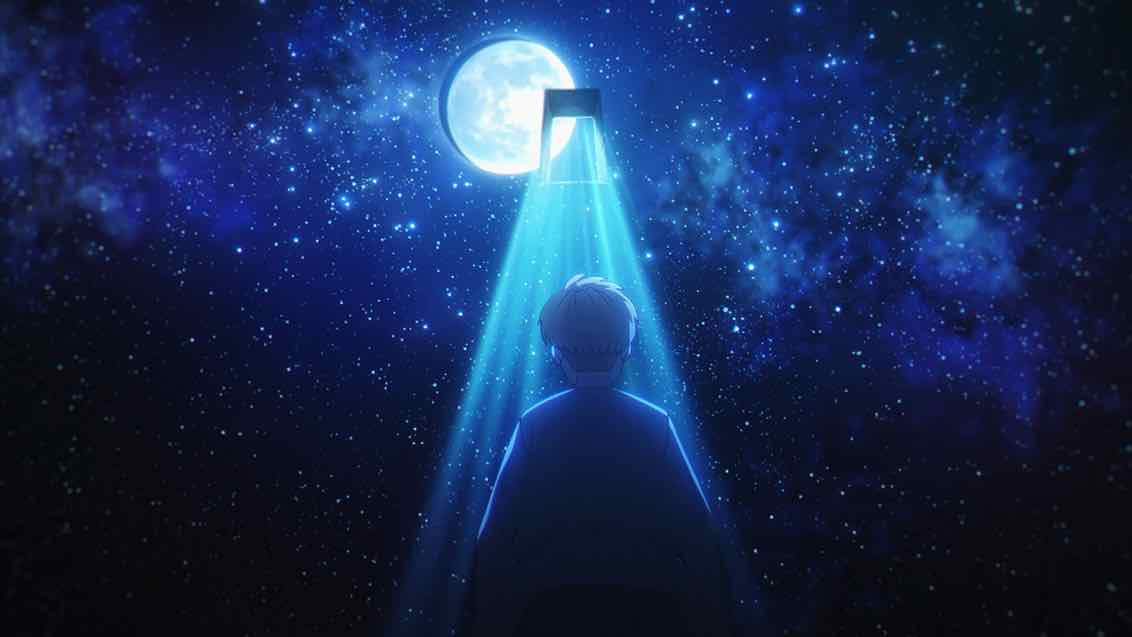

leongsh
May 5, 2019 at 7:39 pmWas waiting for Chika’s solo too. Heard the one put out by Jump Square a few years back. Did not feel that koto player captured a delicate tender sound described in the manga. This performance though had it down in spades – hearing it come to life as described was a beautiful moment that got to me as well. The flashback of Tetsuki and his grandfather not giving up on him building up to his solo moment enhanced the effect. The manga did a good job with it but the anime, with hearing Chika’s tone, heightened its impact even more.
Snowball
May 5, 2019 at 7:50 pmThis was a beautiful episode, no doubt, in what it delivered. I got emotional too with Chika’s solo. Tetsu and grandpa are great souls. Playing the koto is such an elegant art that in reality I hope the majority of (Japanese) youths do not scoff at it like they do in this story. I wish there was an anime on taiko, too.
Guardian Enzo
May 5, 2019 at 8:24 pmThere was a Mirai anime about college taiko a few years back, but that one-off is the only one I’ve seen. As a former taiko drummer (of very limited ability) myself, it’s something I’d love to see.
Snowball
May 5, 2019 at 8:48 pmMe, too. I’m a die hard fan of taiko with about two years of experience. Thanks for your recommendation.
JJ
May 5, 2019 at 9:09 pmForgive me if I’m about to show a stunning amount of ignorance, but didn’t Tsuki ga Kirei have taiko in it? Or was Kotarou’s drumming in that series something entirely different? I know it wasn’t the focus of the show, but I’d like to be right/corrected.
The koto playing was brilliantly realised, but my highlight was Satowa’s apology – as simple as it was, it was executed perfectly. She did not break down in floods of tears. Chika tried to play it down, but he was visibly moved. They kept on bickering straight after and in the rest of the episode, so they’ve both still got a long way to go. Character Growth 101.
Guardian Enzo
May 5, 2019 at 9:20 pmYeah, that was taiko – fair point. It’s definitely not high level (LOL) nor is it a main focus, but it is taiko. Yet another reason to love that show.
Earthlingzing
May 7, 2019 at 1:24 amI haven’t seen an anime with character development so pronounced and natural in a long time.
Guardian Enzo
May 7, 2019 at 10:04 amYeah, and I think a lot of viewers are turned off by it. We see that a lot with anime these days – people want characters prefab, to be finished products right out of the box. And yes, I do think the rise of light novels and their prominence as anime source material are largely to blame for it.